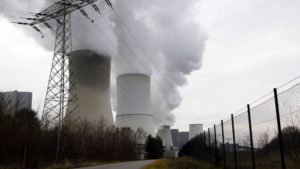 Berlin has agreed to spend €40bn to cushion the economic blow from the closure of coal mines and coal-fired power plants in eastern Germany and the Rhineland over the next two decades. The compensation package is part of a historic effort to wean Germany off a fuel that has powered Europe’s largest economy for centuries but that also counts among the dirtiest fuels around. Power plants that run on coal and lignite produced 40 per cent of electricity in Germany last year — and are one of the main reasons why the country has struggled to meet its greenhouse gas emission reduction targets. Under a plan that was tabled by a government-appointed commission in January, all coal-fired plants will be closed by 2038. The phase-out proposal won the backing of both industry and the environmental movement, but it also sparked anxiety in coal-dependent regions like the Lausitz, east of Berlin, one of the economically weakest areas in all of Germany. According to the 44-page outline of the plan that was approved by cabinet on Wednesday, the €40bn will fund a long list of projects, including the creation of research and development centres in affected regions, the expansion of motorway and railway links, and the construction of landmark sites. Financial Times
Berlin has agreed to spend €40bn to cushion the economic blow from the closure of coal mines and coal-fired power plants in eastern Germany and the Rhineland over the next two decades. The compensation package is part of a historic effort to wean Germany off a fuel that has powered Europe’s largest economy for centuries but that also counts among the dirtiest fuels around. Power plants that run on coal and lignite produced 40 per cent of electricity in Germany last year — and are one of the main reasons why the country has struggled to meet its greenhouse gas emission reduction targets. Under a plan that was tabled by a government-appointed commission in January, all coal-fired plants will be closed by 2038. The phase-out proposal won the backing of both industry and the environmental movement, but it also sparked anxiety in coal-dependent regions like the Lausitz, east of Berlin, one of the economically weakest areas in all of Germany. According to the 44-page outline of the plan that was approved by cabinet on Wednesday, the €40bn will fund a long list of projects, including the creation of research and development centres in affected regions, the expansion of motorway and railway links, and the construction of landmark sites. Financial Times
